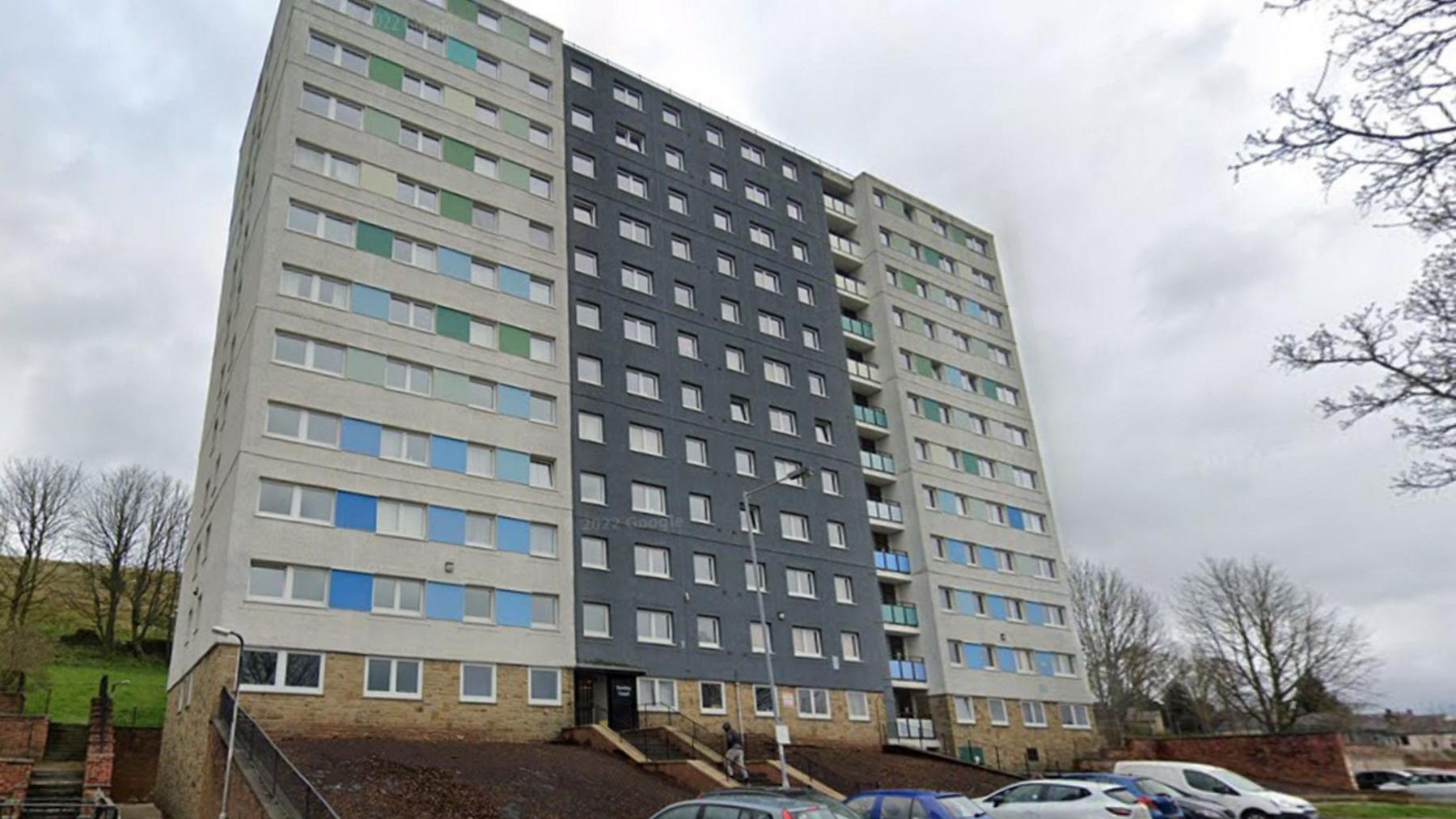Fire crews called to 49 false alarms at flats

Firefighters responded to 49 false alarms at Bentley Court in Keighley in less than six months
- Published
Firefighters have been called out to 49 false alarms at the same block of flats in less than six months.
A West Yorkshire Fire and Rescue Authority meeting heard there had been a drop in the number of false call-outs in other parts of the region, but an 8% rise in the Bradford district, which was down to issues at one building.
The fire service said it was working with the owner of Bentley Court in Keighley to “educate” tenants to prevent future call-outs.
Premier Estates, which runs the building, said it was working closely with the service to provide "resident guidance".
Current policy at West Yorkshire Fire and Rescue Service (WYFRS) was for at least two fire engines and a watch manager to be sent out to each automated fire alarm at a high-rise building, the meeting heard.
'Costing the authority'
Scott Donegan, area manager with responsibility for prevention and response at WYFRS, said the rise was entirely down to issues at the one building.
Bradford councillor Fozia Shaheen asked if there had been “robust work” with the building’s owners to target the problem, adding: “Each time you go out it is costing us as an authority.”
Mr Donegan confirmed the service had worked with building owners to try to bring down the number of false alarms.
A report to the authority revealed that across West Yorkshire the most common reason for false alarms at residential properties was cooking or burnt toast.
A spokesperson for Premier Estates told the Local Democracy Reporting Service it was working with the fire service "to provide resident guidance, and to ensure that fire safety systems in the building remain operational at all times".
The spokesperson said resident safety was the "absolute priority" and added: "We are confident that the work we are doing, including ongoing education and engagement, will reduce the number of call-outs necessary."
Earlier, authority members were given an update on recent changes to policy regarding how the service responded to automated fire alarms.
Since March, it has not responded to automated fire alarms at commercial properties without a confirmed sign of fire.
Exceptions to this include businesses where people sleep, such as care homes or hotels, as well as schools, high-risk chemical sites and heritage buildings.
In the six months since the changes, there has been a 50% drop in the number of call-outs by fire crews to commercial properties.
Listen to highlights from West Yorkshire on BBC Sounds, catch up with the latest episode of Look North or tell us a story you think we should be covering here, external.